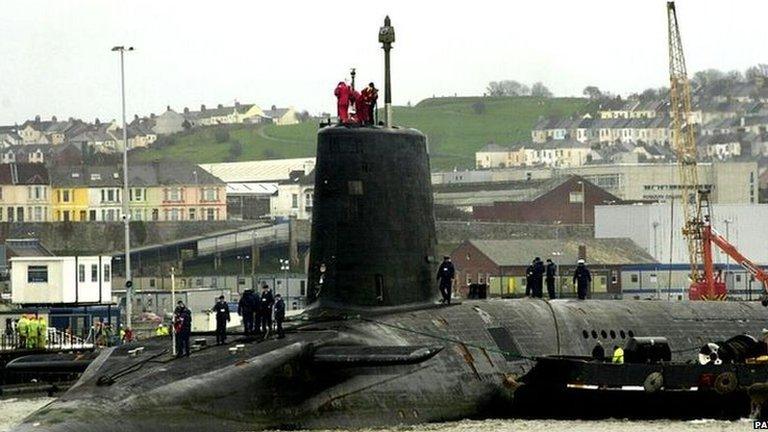Trident: Nick Clegg warns against 'jumping the gun' on decision
- Published
Nick Clegg is opposed to spending "billions" on a Trident-like nuclear system
People should not "jump the gun" over whether or not the UK's Trident nuclear weapons system is to be replaced, says Deputy Prime Minister Nick Clegg.
The Lib Dem leader said the coalition agreement was "crystal clear" that no decision would be taken until 2016.
It followed Defence Secretary Philip Hammond, a Conservative, announcing £350m was to be spent on design work.
The coalition is split, with the Tories backing a like-for-like replacement for Trident, and the Lib Dems opposing it.
Lib Dem Chief Secretary to the Treasury Danny Alexander is currently leading a review into alternatives to a like-for-like replacement.
Mr Clegg denied that the spending announcement suggested the review was pointless.
"The coalition agreement is crystal clear. It stands. It will not be changed. It will not be undermined. The final decision on the replacement of Trident will not be taken until 2016, however much other people may not like it.
"The idea of a like-for-like entirely unchanged replacement of Trident is basically saying we will spend billions and billions and billions of pounds on a nuclear missile system designed with the sole strategic purpose of flattening Moscow at the press of a button."
No 10 said the coalition had agreed last year that it would "proceed on the basis of having a like-for-like replacement" and, as part of that, the Liberal Democrats would look at an alternative.
Work on a successor system - which experts say could cost up to £20bn - was continuing in the meantime, Downing Street added, since the length of time the development process took meant it was essential to press on with early-stage investment decisions.
'Committed'
Announcing the fresh round of £350m of spending for work on a replacement, Mr Hammond said: "Our continuous submarine-based nuclear deterrent is the ultimate safeguard of our national security and the government is committed to maintaining it, both now and in the future."
Defence Secretary Philip Hammond made the announcement while visiting the Faslane naval base on the Clyde
He also said: "This latest expenditure for the next generation of nuclear-armed submarines is an investment in UK security and the British economy, sustaining high-quality jobs and vital skills."
Mr Hammond was asked about the Scottish National Party's pledge to ban nuclear weapons in an independent Scotland.
He said: "We are confident that the Scottish people will choose to remain part of the United Kingdom. The Faslane complex is the largest employment site in Scotland with over 6,500 jobs underpinning the local economy.
"We have no plans to move the nuclear deterrent from the Clyde. On the contrary, we intend to move the Astute and Trafalgar Class attack submarines to Faslane, creating a further 1,500 jobs.
"The Scottish government needs to explain how their policy would benefit Scotland's economy and safeguard Scottish jobs."
The UK government says all Royal Navy submarines will be based at Faslane by 2017.
This, it says, will increase the workforce at the site to over 8,000 by 2022.
'Obscene'
But Scotland's First Minister, Alex Salmond, told the BBC last week that his Scottish National Party would ban nuclear weapons if it were to win power in an independent Scotland.
He said: "If Scotland, by majority, doesn't want nuclear weapons, the SNP proposition is to write that into the constitution of the state. So, that would make the possession of nuclear weapons illegal."
On Mr Hammond's announcement, SNP MSP Bill Kidd said: "For the UK government to boast about spending hundreds of millions of pounds on weapons of mass destruction - while at the same time implementing brutal welfare cuts and slashing investment in the economy - is obscene.
"More than that, Philip Hammond's weak attack on the Scottish people's choice in the Independence referendum continues to use fantasy figures relating to the number of jobs associated with Trident at Faslane."
Last week, the House of Commons Scottish Affairs Committee urged the UK and Scottish governments to reach a deal on nuclear weapons before the 2014 referendum.
- Published23 May 2017
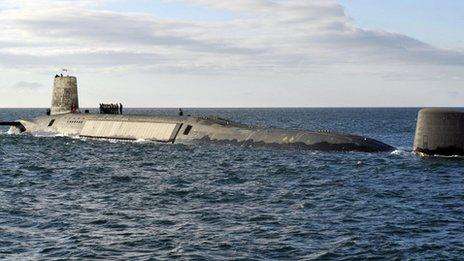
- Published29 October 2012
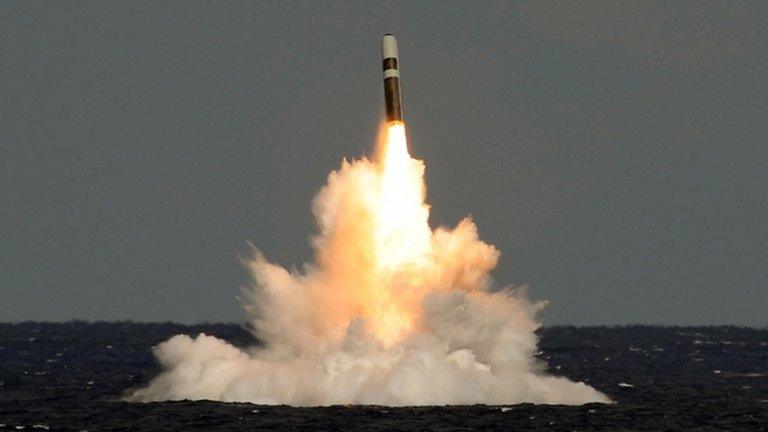
- Published25 October 2012
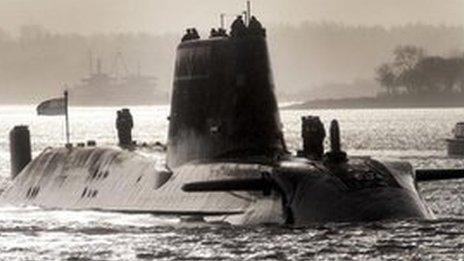
- Published26 September 2012
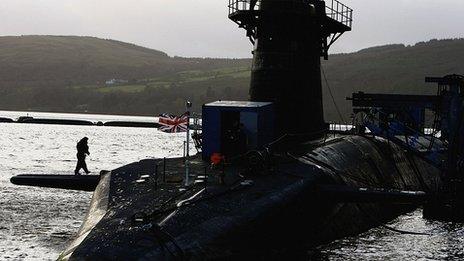
- Published22 September 2012
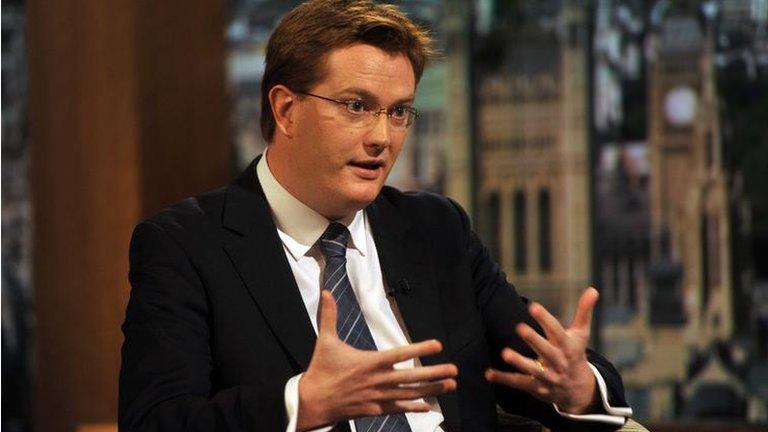
- Published18 June 2012
